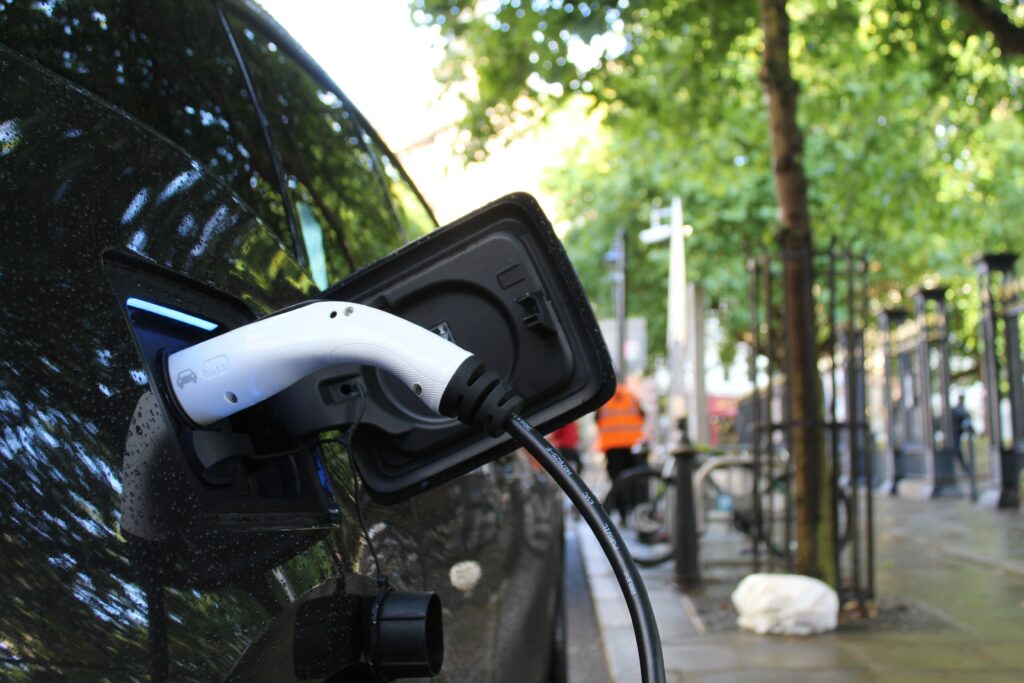Electric vehicle (EV) trade group RECHARGE UK has released a new report detailing several steps that should be carried out to ensure the UK is ready for the surge in EV adoption.
The report, Charging forward to 2030: Critical success factors for the deployment and operation of UK-wide inclusive EV charging infrastructure, details a number of initiatives that could be introduced to “ensure chargepoint deployment can keep up with the anticipated growth in EV sales”.
One of the first calls is for the government to take action now to develop a plan for the rollout of EV charging infrastructure. The report emphasises the need to introduce local strategies and action plans for EV charging to inform distribution network operators (DNOs) and National Grid where to focus their efforts to increase electricity supplies.
Some of these areas of focus have already been identified within the report. It reads that “Birmingham has the largest demand for energy in the UK of 339.9 GWh as it has the largest vehicle count of any part of the UK with 1.1 million vehicles today. Significant energy demand will therefore be put on Birmingham by 2030 and to futureproof it, the report says that local authorities must begin examining where grid reinforcement is most likely to be needed over the next seven years”.
Alongside the development of action plans, RECHARGE UK also argues that an initiative centered on supporting industry in addressing skills gaps could be beneficial for the UK EV industry and bolster adoption rates. One of the crucial factors in this is the need to ensure that the skills force is in place to not only scale EV charging infrastructure but also to maintain it.
The final recommendation focuses on accessibility and safety. The report argues that multiple chargepoint types should be available at charging locations and these must be reliable and safe to use. This could be vital in generating confidence in the UK EV charging infrastructure to spearhead the adoption of clean mobility.
“This report focuses on a wide range of areas that have a vital influence over the whole UK’s ability to accelerate the rollout of electric vehicle charging infrastructure. The government has addressed several barriers already with financial incentives in many parts of the EV market. We hope they will go on to address some of the process challenges in both legislation and market operations – none of which was written with the transition to EVs in mind,” said Mark Constable, chair of RECHARGE UK.
“There are no industry stakeholders who would not agree that these areas need reform. We hope that while change may not be implemented immediately, it will be met with near-universal support by consumers, user groups, industry associations, local authorities, network operators and those private companies with the investment necessary to fund the growth.
“Greater simplicity and greater clarity will lead to more consistency, which will accelerate the pipeline and show the industry can ensure the EV transition does not stall.
“The range of areas in the report – from smoother and less costly streetworks processes to the influx of skilled people across the value chain – demonstrates the ambition of RECHARGE UK in representing the interests of all EV infrastructure market participants and ensuring that innovation and improvement remains at the heart of the conversation. Consumers deserve nothing less.”
Current± publisher Solar Media is hosting its EV World Congress event in London this 10-11 October. The conference will focus on some of the key discussion points from across the EV sector including delivering coherent EV charging strategies, whether the UK is on course for its 2030 charging target, vehicle-to-grid (V2G) technology and more. More information, including how to attend, can be read here.





